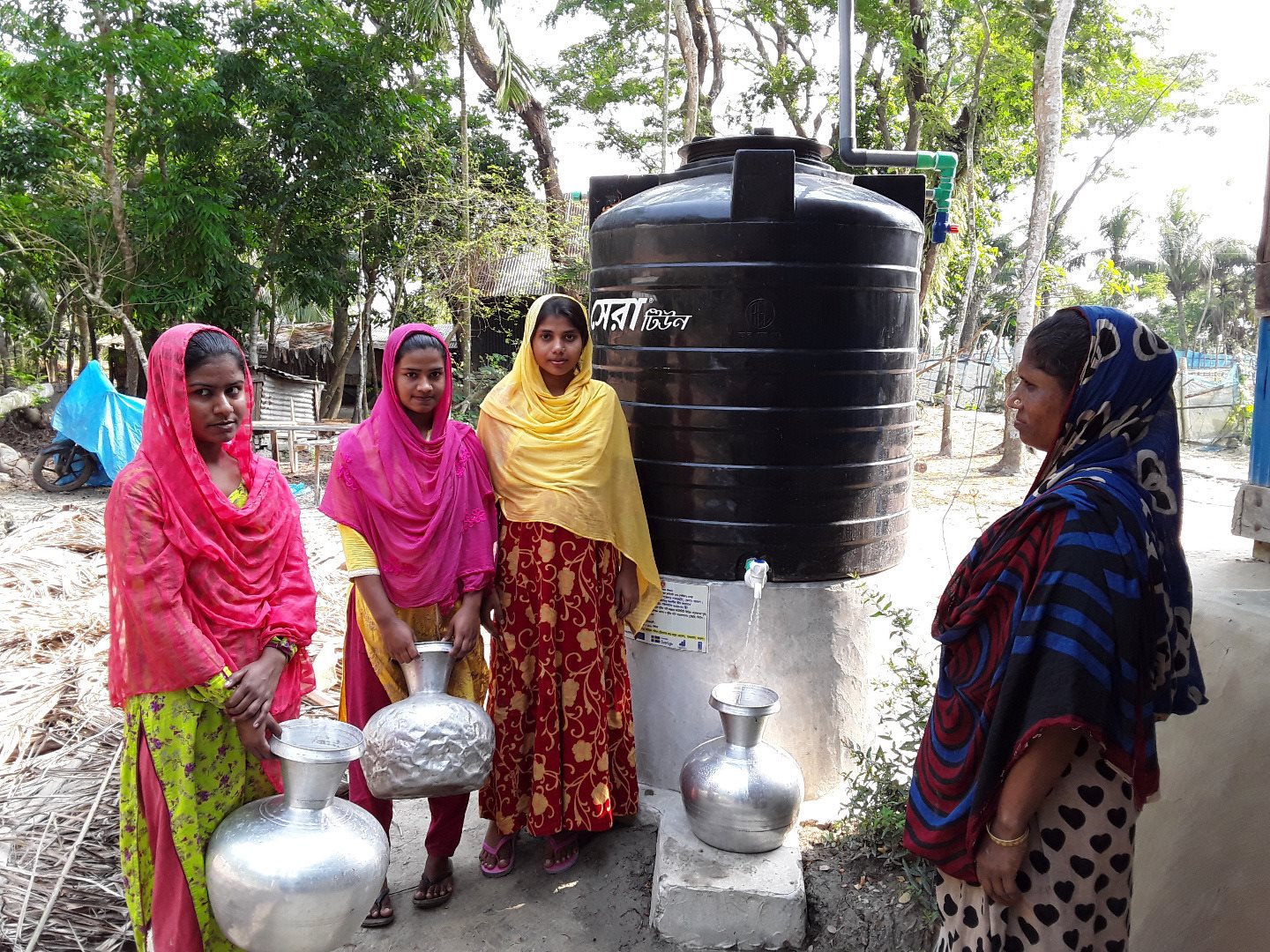Rainwater harvesting in Bangladesh: Building resilience, saving lives
Tags
Share: 


Rainwater harvesting in Bangladesh: Building resilience, saving lives
Villagers in Manikkhali, Bangladesh, are harnessing monsoon rains to provide their communities with clean and affordable drinking water. It’s just one of many schemes funded through the Local Climate Adaptive Living facility that is delivering results and enabling communities to build their climate change resilience.

With funds delivered to local governments through the LoCAL mechanism, rainwater is captured and stored in giant tanks, providing an abundant and disease-free source of fresh water that is improving residents’ health.
“We faced problems with collecting and purifying the polluted pond water as we could not afford to buy purifying chemicals,” explained 28-year old villager Hanufa Aktar Salma, who no longer spends hours each day carrying and fetching water for her family.
For decades, the population of Manikkhali have been drinking the water from natural ponds that surround their village, which lies some 334 km south of Bangladesh’s capital city Dhaka. But climate change and rising sea levels mean that the ponds are regularly flooded with sea water, making them too salty to drink while in the dry season, the un-flushed ponds would become polluted with a host of water-borne diseases, including cholera and typhoid.
LoCAL is a global mechanism, that is flexible and can be adapted to local needs, priorities and limitations. In Bangladesh this means that the LoCAL mechanism has been embraced as part of the Local Government Initiative on Climate change, known briefly as LoGIC. The LoGIC project is funded by the Swedish Development agency SIDA and the European Union, with some input from UNDP and UNCDF, uses LoCAL’s system of Performance Based Climate Resilience Grants to channel additional resources to local governments and support their locally identified projects with technical support and capacity building.
Community leaders and social workers identified the lack of clean water sources as the primary development issue facing their community some two years ago. Following a series of climate adaptation assessments, a Performance Based Climate Resilience Grant of US$ 11,428 was approved to fund the rainwater harvesting project and to save lives in Manikkhali. Implementation began in February and was completed in time for this year’s rains, which began in March.
To date there are 30 rainwater harvesting systems, each with a capacity of 1,000 liters of water. With a mere investment of US$ 25 per family, more than 450 poor families have now access to drinking water for the next ten to fifteen years.
Women and girls no longer have to walk hours each day to collect clean, drinkable water – nor risk sexual assault or violation on their journey.
The families benefitting from the water harvesting tanks came to an agreement with the local government, or Union Parishad, to ensure the system is maintained through a joint maintenance committee, which has been provided training on how to do that.
Now that the villages are no longer using the ponds for drinking water, they are increasingly being used for fish farming, providing a valuable boost of protein-rich food for the community. The rainwater harvesting system has proved so popular that other families not part of the original community action, are planning similar initiatives using personal funds.
LoGIC has been a major step forward for this community, building climate change resilience by working with the community and Union Parishad to identify needs and deliver on them in a sustainable manner.
/end